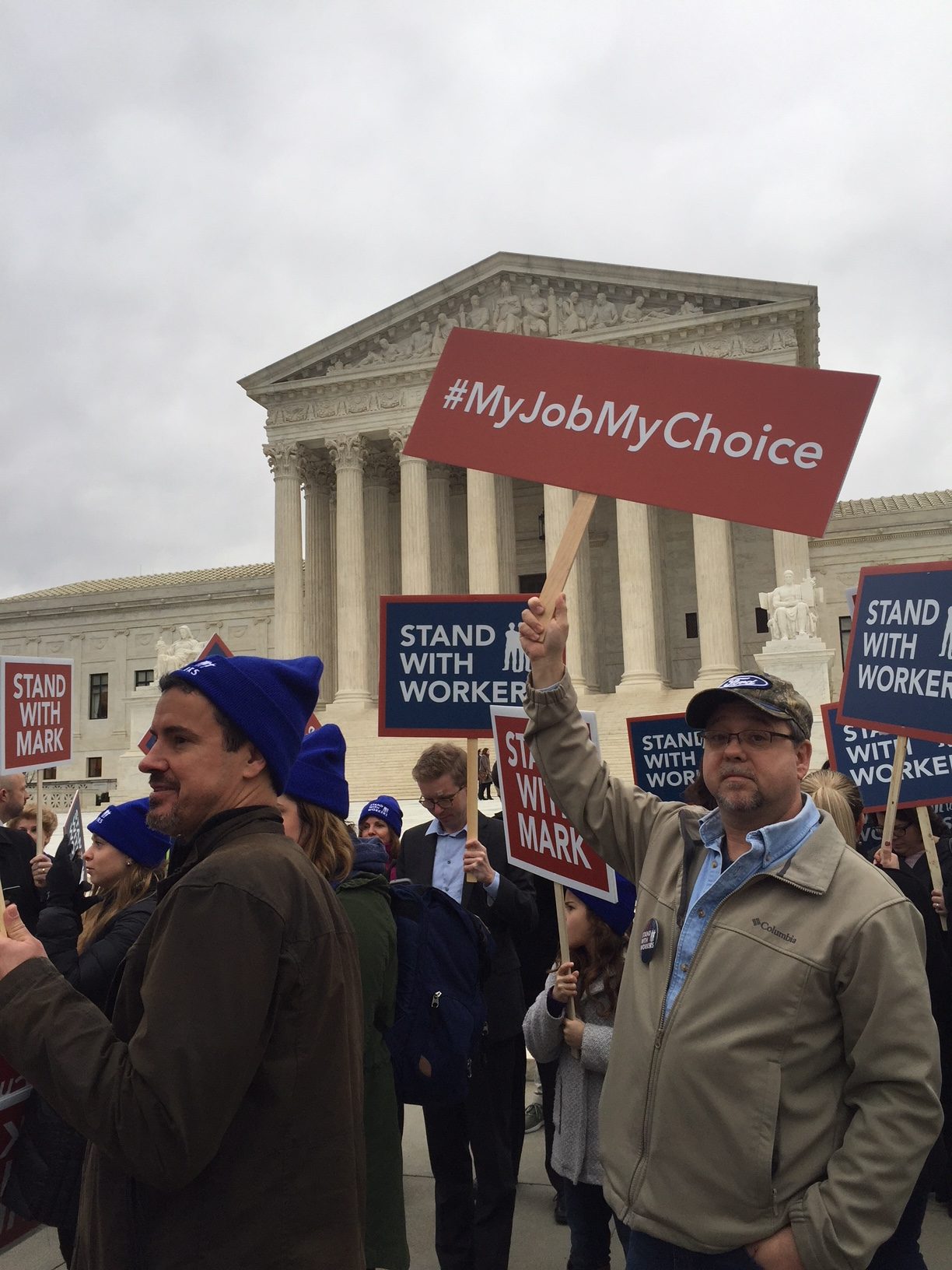Connecticut’s Senate passed a pro-union bill designed to push back against the Supreme Court’s 2018 decision in Janus v. AFSCME, but that legislation, if passed into law, could land the State of Connecticut in court.
Senate Bill 908 mandates that public employers allow union representatives to use public facilities and email systems and grant union representatives access to new employee orientations and the employee’s personal contact information.
However, the law would also make dues authorizations on union membership cards a matter of state law and those authorizations have been the subject of numerous lawsuits in other states.
Under the Janus v. AFSCME decision, public-sector unions cannot require a public employee to pay union dues or fees because the court found it violated public employees’ Freedom of Speech rights, but dues authorization windows outlined on union membership cards do precisely that.
Specifically, union membership cards impose a window of time – often a two-week period once a year or a period of time surrounding the anniversary of the employee’s date of hire — during which a public employee can cease paying dues regardless of whether or not they remain a union member. A public employee can resign union membership at any time but essentially be required to keep paying dues until that “escape period.”
In Connecticut, AFSCME membership cards allow an individual to cease paying dues only 10 days before and 20 days after their annual membership anniversary regardless of whether or not they remain a union member. The American Federation of Teachers membership card limits due revocation to the month of February.
According to Senate Bill 908, “the revocability of an authorization shall be determined by the terms of the authorization,” and public employers must rely on the union to provide information on dues deductions. Any public employee seeking to leave the union must appeal only to the union and not their employer, according to the bill language.
These escape periods, however, have resulted in lawsuits brought against unions in Ohio, Pennsylvania, Alaska, Chicago and Las Vegas and against the State of New Jersey.
A successful class action lawsuit in Ohio brought by public sector workers against AFSCME Council 11 forced public sector union in that state to rescind their “maintenance of membership” policy, which only allowed public employees to rescind their dues authorizations once every three years.
More applicable to Senate Bill 908, which may soon go before Connecticut’s House of Representatives, is a class action lawsuit brought against the International Brotherhood of Electrical Workers and the State of New Jersey.
In 2018 New Jersey passed the Workplace Democracy Enhancement Act, a law nearly identical to that being considered in Connecticut’s General Assembly.
Under New Jersey’s WDEA, employees may only revoke their union dues authorization “during the 10 days following each anniversary date of their employment,” according to bill’s summary.
“The ruling in the Janus decision was crystal clear: public servants have a First Amendment right to refuse to associate with union bosses whose so-called ‘representation’ they oppose,” said National Right to Work Foundation President Mark Mix in a press release. “It is blatantly unconstitutional that the WDEA prevents public workers from exercising their constitutional right for more than 97 percent of the year.”
The National Right to Work Foundation has represented public employees in “more than a dozen” similar cases across the country dealing with escape periods outlined on union membership cards and have favorably settled eight so far, according the organization.
In Connecticut, a 2019 lawsuit brought by two state employees over dues authorization windows was also settled in favor of the plaintiffs.
State of Connecticut employee and former member of the Administrative and Residual Employees Union Phuong Nguyen was informed by A&R President John DiSette that although she was no longer a union member, she had to keep paying dues until February.
Nguyen filed a lawsuit in federal court against the union. She was joined by a co-worker and represented by Rep. Craig Fishbein, R-Wallingford, and the Fairness Center, a nonprofit legal group based out of Pennsylvania that is representing plaintiffs in nine other similar cases. The suit was eventually settled in Nguyen’s favor.
While the legislation before Connecticut’s General Assembly is meant to provide a work-around for public sector unions by making the escape periods a matter of state law, it could also open the State of Connecticut to the possibility of a lawsuit similar to the one faced by New Jersey.
This is the third year Connecticut’s public-sector unions have pushed for this legislation. In 2019, the same bill passed in the House of Representatives but was never brought up in the Senate.


Deborah ferriola
July 30, 2021 @ 10:59 am
Im a city worker in new haven i want out of my union can you help